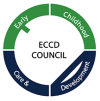Early Learning Programs
Early Learning Programs are child-centered play-based programs designed to provide early stimulation and learning opportunities to children aged 0 to 4 years old. Implemented through center-based, home-based, and alternative modes of delivery, these programs aim to promote children’s holistic development anchored on their developmental needs and interests. Its inclusive approach encompasses children with developmental delays and disabilities, and those from Indigenous People’s Groups. With a strong focus on integrated ECCD, Early Learning Programs strive to create a foundation for lifelong learning for all children.
National Early Learning Curriculum
The National Early Learning Curriculum (NELC), developed by the ECCD Council, focuses on the total development of children rooted in Developmentally Appropriate Practice Core Considerations: Commonality, Individuality, and Context. Comprising eight Learning Resource Packages (LRPs), the NELC provides a variety of suggested learning experiences for the Infant-Toddler Early Development (ITED) Program and Pre-Kindergarten Programs.
The NELC is specifically designed to guide ECCD service providers Child Development Teachers (CDTs) and Child Development Workers (CDWs) in their roles and responsibilities in Child Development Centers (CDCs). It provides them with the knowledge and practice in creating and planning appropriate learning experiences within an intentionally designed learning environment that all contribute to the holistic development of children.
Infant-Toddler Early Development (ITED) Program
The Infant-Toddler Early Development (ITED) Program is designed to cater to children aged 0 to 2 years old. In the Program, Child Development Teachers (CDTs) and Child Development Workers (CDWs) provide infants and toddlers with a secure base for exploration, learning, and discovery through learning experiences that are implemented by their parents and caregivers who know them best and are responsible for growth and development.
Implemented through once-a-week one-hour sessions, CDTs and CDWs provide valuable guidance and orientation to parents and caregivers. Anchored on the principle of responsiveness to children’s initiative, parents are equipped to support children’s curiosity as well as implement developmentally appropriate and intentional activities at home. Through this partnership between parents and CDTs and CDWs, and interactions with children, parents and caregivers are empowered to take on the role of the primary caregiver and educator of their children.
Pre-Kindergarten 1 (Pre-K1)
The Pre-Kindergarten 1 Program is tailored for children aged 3.0 to 3.11 years old. Through regularly scheduled sessions, children engage in routines designed to target the different development domains through play, exploration, and learning experiences. CDTs and CDWs employ the National Early Learning Curriculum (NELC) to plan, implement, and evaluate daily activities, using the children’s developmental needs and interests as the basis. This ensures that the Program is developmentally appropriate for children enrolled.
Pre-Kindergarten 2 (Pre-K2)
The Pre-Kindergarten 2 Program is designed for children aged 4.0 to 4.11 years old. Implementing developmentally appropriate learning activities based on curricular themes aligned with the Department of Education (DepEd) Kindergarten themes, the Program aims to support the development of essential skills and competencies that ensure children go through a smooth transition to kindergarten. Sessions follow a set routine adapted to the developmental characteristic of each child and their interest and incorporate play-based experiences that foster children’s independence.
Home-based ECCD Program
The Home-based ECCD Program is a learning initiative designed to reinforce parents and caregivers as the primary caregivers and educators of their children. It caters to children and families who face challenges in accessing center-based programs from these different contexts: (1) areas in which existing centers are geographically far from the child; (2) areas in which public transportation is unavailable, poor, and unsafe for children; (3) areas affected by emergencies and/or natural calamities; (4) areas with the presence of armed conflict; and (5) areas with highly congested centers, having a high number of enrollees.
The Program is implemented in the following Four Phases:
- Phase 1, Support Parents as First Teachers, introduces parents to their critical role as the primary educators of their children.
- Phase 2, Increase Parent Involvement, actively engages parents in their child’s learning by becoming co-developers of learning experiences.
- Phase 3, Gain Progressive Parent Ownership, supports parents in taking on more decision-making responsibilities based on their children’s needs and interest in their educator.
- Phase 4, Establish Parent Independence, equips parents and caregivers with the knowledge, skills, and confidence to guide their child’s education independently.
The Home-based ECCD Program aims to include homes as learning environments, where parent-child relationships are fostered and strengthened while ensuring that children receive a foundation for future learning and development.
Center-based Program in Alternative Venues (CBPAV)
The Center-Based Program in Alternative Venue (CBPAV) is an emergency response strategy aimed at ensuring the uninterrupted implementation of early learning programs for young children who are part of center-based programs. Designed to adapt to various emergency contexts, CBPAV is guided by a flexible curriculum aligned with the National Early Learning Curriculum (NELC). The curriculum considers the children’s family environment and available resources, promoting and emphasizing a holistic approach to learning and development. Alternative venues of the Program include homes and temporary learning spaces within the community, ensuring that children’s learning development continues amidst challenging circumstances.




